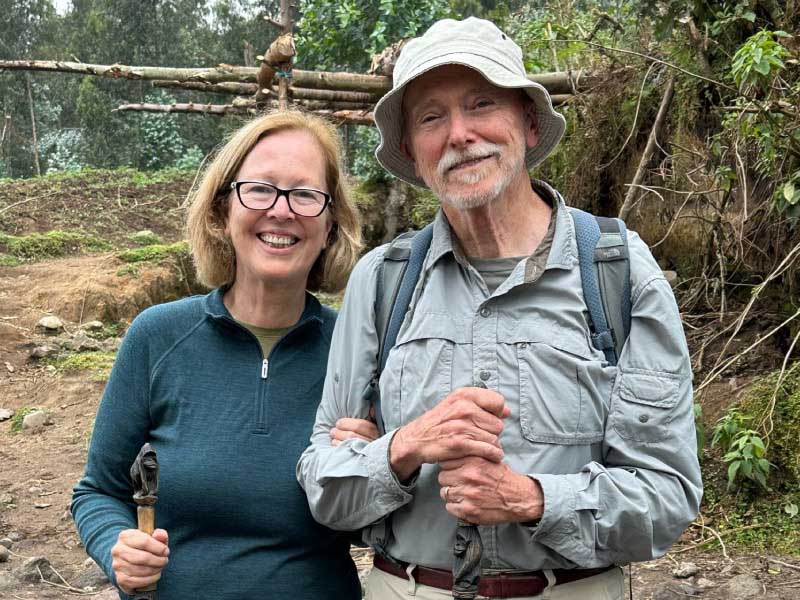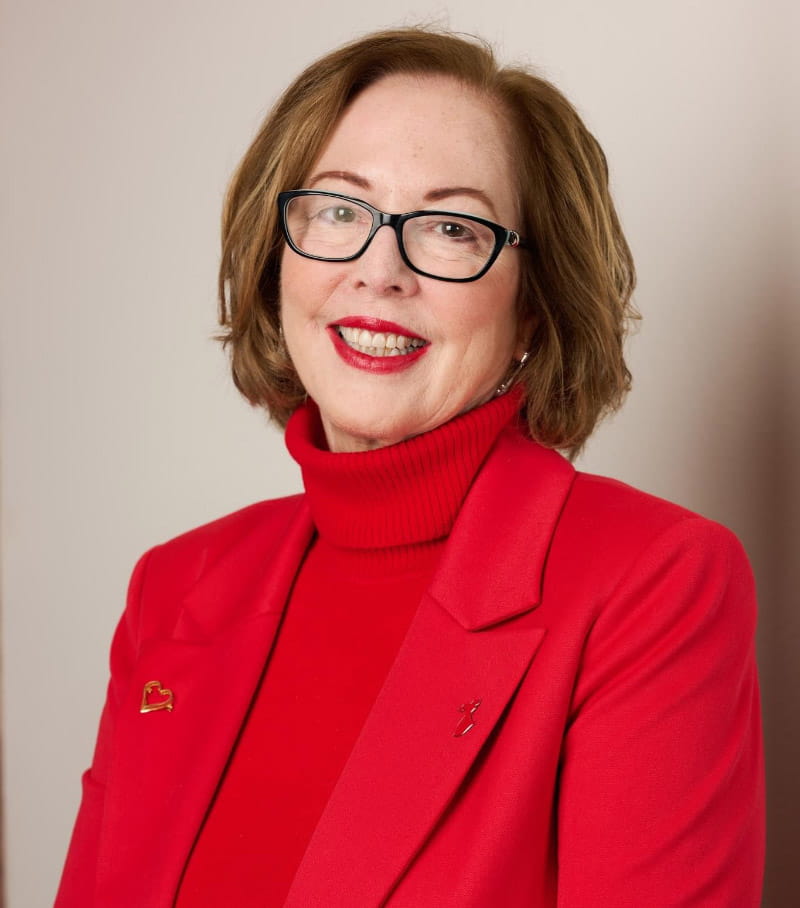She didn't know what was wrong. Neither did her dad when he had a heart attack.
By Lindsey Giardino, American Heart Association News

Susan Koeppen was two hours into a conference call while working from her home in Kirkland, Washington, when she started feeling pain in her left shoulder blade.
Figuring it was from being idle for so long, she went from sitting to standing. The pain eased a bit.
When the call ended, she went upstairs to grab something for lunch. That's when she was hit with an overwhelming sense of nausea.
Her husband, Rob Koeppen, was about to leave the house.
"I'm really not feeling well," Susan said. "Can you stick around?"
"Sure," Rob responded, even though he didn't sense anything seriously wrong with her.
Susan laid down on her bed to see if that would help. Doing so only made her shoulder pain and nausea worse.
"Could this be COVID-19?" Susan thought.
She went into the bathroom to grab an at-home COVID test. It came back negative.
As she continued to feel worse, she kept trying to figure out the source of her discomfort.
Then she remembered something: When her father experienced a heart attack, he couldn't articulate what exactly was wrong, just that he felt terrible.
She needed to get to the emergency room.
While waiting to get treated, Susan's mind flashed forward. Fearing the worst, she realized she hadn't properly prepared her family for life without her. For instance, the normally organized then-63-year-old hadn't kept a log of passwords to important accounts. She began jotting them down.
When Susan finally got into a room, her blood was drawn. About five minutes later, a doctor arrived to give her aspirin and nitroglycerin.
"Wait a minute, shouldn't we find out what's going on before you give me anything?" Susan asked.
"We know this is a heart attack," the doctor responded.
Susan and Rob were stunned.
"How could it be that my sweetheart, who either jogged or swam a mile – or both – several times every week, was having a heart attack?" Rob said.
Further tests showed a 100% blockage in the artery that provides most of the blood to the heart. She was whisked to the catheterization lab, where doctors inserted a stent to restore proper blood flow.
All of this happened within hours. The quick response likely saved her life.
Susan was able to return home the next day. She took the next couple weeks off from work to recover; during that time, she also started cardiac rehabilitation at her local hospital.
Nearly two years later, Susan pays closer attention to her lifestyle. She goes for a walk every day and swims, runs or hikes three to four times a week. She also eats more lean protein, fruits and vegetables while cutting back on sweets and red meat.
Starting this month, she'll have more time to be active, travel and enjoy the company of loved ones. She's retiring from her decades-long career as a lawyer, most recently serving as vice president and chief privacy officer at a large travel technology company.
Susan now understands that symptoms of a heart attack can be subtle, especially in women. She reflects on her father, who had his heart attack around the age of 70. It was surprising when it happened because he was seemingly healthy. He jogged every day and even swam in the ocean.
She also now better understands the threat posed by her family history. She was at an elevated risk because both her parents had heart attacks; her mom's mom had four heart attacks.
"It's a family history I can't run away from," Susan said.

The good news of her family history is that her parents not only survived their heart attacks, but also thrived for years to come. Her mom lived to be 91, her dad 86.
"I get a lot of hope and optimism from that," Susan said. "Having a heart attack doesn't necessarily mean that my life is going to be shorter or less fulfilling."
Stories From the Heart chronicles the inspiring journeys of heart disease and stroke survivors, caregivers and advocates.





